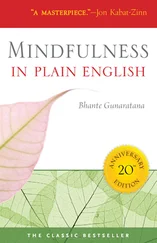Marian Wharton - Plain English
Здесь есть возможность читать онлайн «Marian Wharton - Plain English» — ознакомительный отрывок электронной книги совершенно бесплатно, а после прочтения отрывка купить полную версию. В некоторых случаях можно слушать аудио, скачать через торрент в формате fb2 и присутствует краткое содержание. Жанр: foreign_edu, foreign_language, на английском языке. Описание произведения, (предисловие) а так же отзывы посетителей доступны на портале библиотеки ЛибКат.
- Название:Plain English
- Автор:
- Жанр:
- Год:неизвестен
- ISBN:нет данных
- Рейтинг книги:5 / 5. Голосов: 1
-
Избранное:Добавить в избранное
- Отзывы:
-
Ваша оценка:
- 100
- 1
- 2
- 3
- 4
- 5
Plain English: краткое содержание, описание и аннотация
Предлагаем к чтению аннотацию, описание, краткое содержание или предисловие (зависит от того, что написал сам автор книги «Plain English»). Если вы не нашли необходимую информацию о книге — напишите в комментариях, мы постараемся отыскать её.
Plain English — читать онлайн ознакомительный отрывок
Ниже представлен текст книги, разбитый по страницам. Система сохранения места последней прочитанной страницы, позволяет с удобством читать онлайн бесплатно книгу «Plain English», без необходимости каждый раз заново искать на чём Вы остановились. Поставьте закладку, и сможете в любой момент перейти на страницу, на которой закончили чтение.
Интервал:
Закладка:
16.We have found that every sentence must have at least two words, one word to name that about which something is said and another word which does the saying or makes the assertion. In the sentence, Men work , we have these two parts; men which is the part about which something is said, and work which tells what men do.
The part about which something is said is called the subject.
In this sentence, Men work , men , therefore, is the subject, for it names that about which something is said.
17. The part that asserts or says something about the subject is called the predicate.
Therefore in this sentence, Men work , work is the predicate. In the following sentences draw a single line under the subject and a double line under the predicate, thus, Birds fly .
Ships sail.
Soldiers fight.
Flowers fade.
Horses neigh.
Flags wave.
Snow comes.
War rages.
Winds blow.
Fish swim.
18.We may add other words to the subject or the predicate and so enlarge their meaning, as for instance we may say:
The stately ships sail proudly away.
The war in Europe rages furiously.
The soldiers in the army fight like men gone mad.
Yet in every one of these sentences you will find the subject and the predicate,— Ships sail , War rages , Soldiers fight .
Every sentence must have a subject and a predicate, and it is a very important part of the study of sentences to be able to distinguish quickly and readily the subject and the predicate. Find that about which something is said, and that will always be the subject. Find that which is said about the subject, and that will be the predicate.
Every sentence must contain a subject and a predicate.
The subject of a sentence names that about which something is said.
The predicate tells that which is said about the subject.
Exercise 3
In the following sentences add other words to the subject and to the predicate to enlarge their meaning, then draw a single line under the subject and a double line under the predicate:
Ships sail.
Tides flow.
Stars shine.
Rain falls.
Children play.
Nature sleeps.
Waves break.
War rages.
Birds sing.
Exercise 4
In the following sentences the subject and the predicate have other words added to enlarge their meaning. Find the subject and predicate and draw a single line under the subject and a double line under the predicate, as in the sentence,

1. Our success lies in solidarity.
2. New occasions teach new duties.
3. Two classes exist in the world.
4. Labor creates all wealth.
5. The workers fight all battles.
6. Our time calls for earnest deeds.
7. Knowledge unlocks the door of life.
8. Ignorance bars the path to progress.
9. Few people think for themselves.
10. Hope stirs us to action.
SPELLING
LESSON 1
Spelling is the process of naming or writing in proper order the letters of a word.There is nothing that marks us so quickly as lacking in the qualities that go to make up a good education as our inability to spell the words most commonly used.
Spelling in English is rather difficult. If each letter represented but one sound, spelling would be an easy matter. Every word would be spelled just as it sounds. This is the goal of those who advocate phonetic spelling. Phonetic spelling simply means spelling according to sound. But our alphabet does not have a letter for every sound.
There are some forty-two different sounds used in English words and we have only twenty-six letters in the alphabet. Therefore some letters must do duty for several sounds. Then we have words which contain letters which are not sounded at all when the word is pronounced, so, all in all, spelling is a matter of memorizing.
The best way to become an accurate speller is to read much, to observe closely the forms of words and to write frequently. Always spell any word of which you are uncertain aloud several times and write it out several times. In this way you have aided the memory both through the eye and through the ear. If you are not sure of the spelling of a word do not use it until you have looked it up in the dictionary and made sure.
The words in this lesson are taken out of Lesson 1, Plain English Course. There are thirty in all, five for each day of the week. (1) Look up the meaning in the dictionary. (2) Learn the correct spelling. (3) Learn the correct pronunciation. (4) Use the word in a sentence of your own construction. (5) Use it during the day in your conversation; strive to make it a part of your working vocabulary.
Monday
Mode
English
Grammar
Expression
Complete
Tuesday
Language
Emotion
Group
Mastery
Dictionary
Wednesday
Thought
Symbol
Ability
Idea
Knowledge
Thursday
Subject
Predicate
Vocabulary
Practice
History
Friday
Memory
Sentence
Write
Right
Purpose
Saturday
Propose
Growth
Learn
Teach
Pronounce
PLAIN ENGLISH
LESSON 2
Dear Comrade:
Review Lesson 1 before taking up this lesson. Do not try to learn by rote the contents of these lessons. Our endeavor is to make you see the reason for every rule and definition before they are given. We want you to see unfolding before you the development of language and through this evolution you can catch a glimpse of the developing life of man. Language like customs, religion, government, has grown with the economic advancement of man. As man has evolved on the economic plane, the material plane, as he has improved his means of providing for himself food and clothes and shelter, he has developed a language suited to his needs.
So we can trace the growth of the race as we study the development of language from the sign language of the primitive savage to the language of the philosopher of today by which he makes known to us the story of the stars, and the innermost secrets of our hearts and minds. Civilization began with the invention of the phonetic alphabet and the use of writing. So the study of language becomes not a dull and stupid conning of useless rules and formulas, but an absorbing study of a living, growing, changing thing that mirrors forth the very life of man.
Think while you study. As you look for the definition of words in your dictionary and realize how many shades of meaning we can express in words, remember that this power is a heritage that comes to us from a long past of incessant struggle.
We of to-day are also writing history in words. By our efforts we are adding new words to the language and giving old words a richer meaning. Brotherhood , justice , for example! The world is coming to understand these glorious words more fully and giving them a new interpretation.
You will see a new beauty and glory in words after you have finished this course and you will have a mastery of this wonderful language of ours.
Watch carefully the use of words in your reading. Especially this week distinguish the nouns and verbs. Use your dictionary constantly and add a few words to your vocabulary every day.
Читать дальшеИнтервал:
Закладка:
Похожие книги на «Plain English»
Представляем Вашему вниманию похожие книги на «Plain English» списком для выбора. Мы отобрали схожую по названию и смыслу литературу в надежде предоставить читателям больше вариантов отыскать новые, интересные, ещё непрочитанные произведения.
Обсуждение, отзывы о книге «Plain English» и просто собственные мнения читателей. Оставьте ваши комментарии, напишите, что Вы думаете о произведении, его смысле или главных героях. Укажите что конкретно понравилось, а что нет, и почему Вы так считаете.












